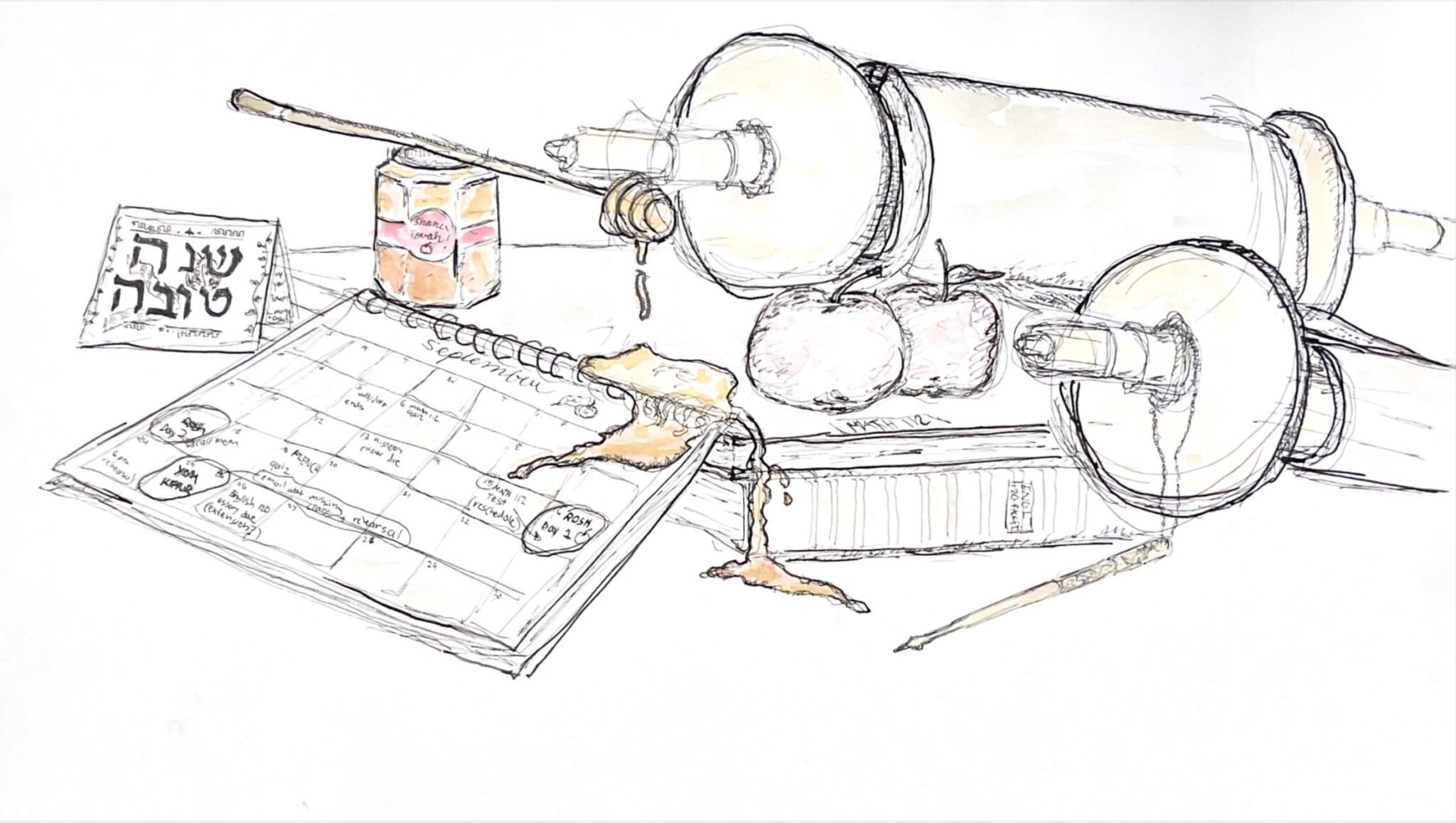Yalies ‘playing catch up’ with classes held on Jewish High Holidays
Jewish students spoke with the News about observing Rosh Hashanah and Yom Kippur on campus this year while balancing academic commitments.

Mia Rose Kohn
As Yalies celebrated the High Holidays this year, several raised concerns about balancing religious observation with demanding course schedules.
These students told the News that the Jewish High Holidays, Rosh Hashanah and Yom Kippur, coinciding with the academic week left them playing catch-up on school work. Though they said they found professors to be accommodating, several students said that the University should proactively take steps to promote a smoother experience for those observing the religious holidays.
Elliot Lichtman ’27 spoke to the News about his experience balancing a rigorous course load while fasting for Yom Kippur.
“Professors seem to be taking steps such as moving office hours and providing alternate times to take quizzes, which is much appreciated,” Lichtman said. “But it would be great for Yale to request professors to record lectures on Yom Kippur so that students who are fasting could skip the lecture and catch up later.”
Rosh Hashanah, the Jewish New Year, took place from Sept. 15 to Sept. 17, and Jewish people observed Yom Kippur, the Day of Atonement, from Sunday through Monday this year.
Jon Cohen ’27 echoed Lichtman’s comments, going a step further as he suggested the University should designate Yom Kippur as an official academic holiday for Jewish students.
While Cohen said he appreciated the efforts individual faculty members had made to support Jewish students seeking academic accommodations on the High Holidays, he noted that it was difficult to remain on top of work while observing the religious holiday.
“I think Yale does a good job with reference to the Holy Days, but it would be nice to get a day off during Yom Kippur, as I’m now playing catch up,” Cohen stated.
Though some students said that canceling class may be not be feasible, they said they would like a standardized University policy allowing them to obtain religious exemptions from class and extensions on assignments. As of now, policies vary from professor to professor.
Orly Mann, a Hillel Springboard social justice and arts fellow who works at the Joseph Slifka Center for Jewish Life at Yale, said she agrees with students’ sentiments.
“Yale’s academic calendar can create various challenges to the observance of the holidays,” she told the News before encouraging students to come to the Slifka Center for help if they have concerns about celebrating the holidays.
Lichtman and Cohen both said that they appreciated the manner in which the High Holidays were celebrated at Yale. The Slifka Center held celebrations for both Rosh Hashanah and Yom Kippur in the form of prayers, study, rituals and communal meals.
In celebration of Rosh Hashana, the Center arranged for the Shofar — a ceremonial ram’s horn — to be blown on Cross Campus and distributed apples and honey as a symbol for a sweet new year.
The Center also held a Tashlikh celebration, a ritual representing the casting away of the year’s sins. Mann described their Tashlikh as being held in a “reverse” format, in which students removed debris from New Haven’s Mill River.
Both Lichtman and Cohen emphasized the expertise with which the Slifka Center ran services and the community engagement they said they were able to experience at the Center.
“Slifka is an incredible community,” Lichtman expressed. “At each event, I was able to connect with people who I had previously only seen walking to class or on the other side of a lecture hall. The High Holidays were an incredible opportunity to get to know the amazing Jewish community here at Yale.”
Cohen said he was especially appreciative of the atmosphere the Slifka Center promoted, describing the Center as “well organized” with an “amazing” atmosphere.
Mann highlighted the work that students and Slifka members alike put into holding successful services.
“The reality and successes of Holiday prayers are due to these individuals working tirelessly for the weeks leading up to these momentous days with guidance from the clergy at Slifka,” she noted.
This year, students led three parallel prayer services: Reform, Traditional Egalitarian and Orthodox. Cohen noted that University President Peter Salovey was present at the service he attended, sharing that he was pleasantly surprised to see the larger Yale community, beyond just students, being brought together by the Slifka Center.
Cohen, whose local synagogue has a much older audience, said he was similarly surprised by the services’ emphasis on the collegiate community. He described the services as focusing on a broader sense of togetherness.
Mann also emphasized that at the Slifka Center, no matter the time of year, “all are welcome!”
Sukkot, the next holiday in the Jewish calendar, takes place from Sept. 29 to Oct. 6. The Slifka Center is celebrating the holiday with a sukkah set up on the Pechter Family Terrace.







